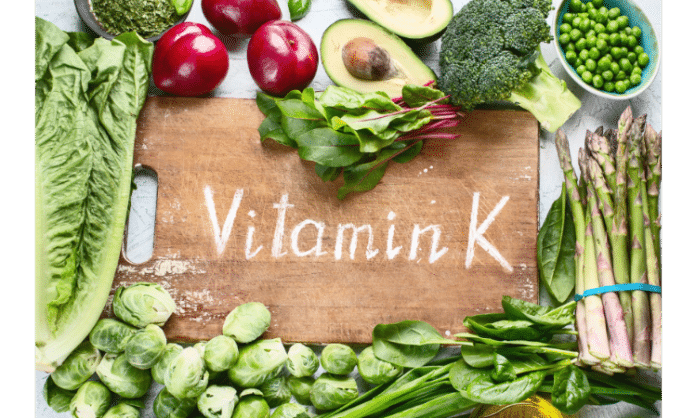
You may have heard of vitamin K before, but do you know what it does for your health or which foods are rich in it? The most widely-known function of vitamin K is its role in blood clotting. However, this vitamin offers many more benefits than helping your body stop bleeding. It also supports a range of functions within the body, including bone metabolism and protection against heart disease. In addition to finding out what vitamin K does for your health and how much you need each day, we’ve compiled a list of foods high in this essential nutrient to keep your diet well-balanced.
Bone health

Vitamin K is an essential nutrient for maintaining healthy bones.
Vitamin K plays an important role in blood clotting, which helps stave off excessive bleeding and bruising after an injury. This vitamin also promotes bone health by helping to metabolize calcium into the bone matrix. A lack of vitamin K can lead to osteoporosis or even fractures that are difficult to heal.
Cognitive health

Vitamin K is an essential vitamin that plays a role in the development of brain health.
Vitamin K is needed for the production of brain chemicals including neurotransmitters and other hormones. These chemicals help regulate your mood, sleep patterns, and memory function. It also helps support healthy myelin (the protective covering around nerves), which helps with coordination and balance.
Additionally, vitamin K is important for producing proteins that are necessary for normal growth and development in children as well as adults. For example:
- Vitamin K helps produce two proteins – osteocalcin (which promotes bone density) and matrix Gla-protein (which supports calcium absorption).
- The amino acid named menaquinone-4 (MK4) is produced by bacteria living within human intestines; it can then be converted into MK7 or MK8 by gut enzymes before being absorbed into circulation where it eventually reaches target organs such as bone marrow cells where it contributes to building strong bones through supporting osteocalcin synthesis.*
Heart health

Vitamin K is a group of fat-soluble vitamins that are important for blood clotting and bone health. Foods high in vitamin K include leafy greens like kale, spinach, Swiss chard, and collard greens.
Vitamin K helps lower blood pressure and reduce the risk of heart disease by promoting normal levels of good cholesterol (HDL) in your bloodstream. It also helps prevent calcium from building up in your arteries and veins—a condition called calcification that leads to hardening of the arteries or atherosclerosis.
A major study found that people who consumed more than 91 micrograms of vitamin K per day had up to a 50% reduced risk of heart attack or stroke compared with those who ate less than 45 micrograms daily.
Kale
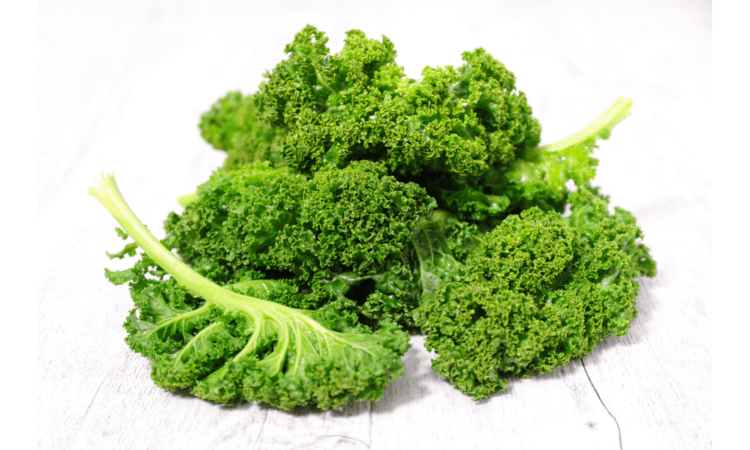 Kale is a cruciferous vegetable that belongs to the same family as broccoli, cauliflower, and bok choy. This dark green leafy vegetable is rich in vitamins C and K. Just one cup of kale contains over 100% of your daily needs for both vitamin K and vitamin A.
Kale is a cruciferous vegetable that belongs to the same family as broccoli, cauliflower, and bok choy. This dark green leafy vegetable is rich in vitamins C and K. Just one cup of kale contains over 100% of your daily needs for both vitamin K and vitamin A.
Kale can be used in many ways: raw kale salad with an avocado dressing or sautéed with olive oil and garlic. If you like eating cooked greens then try steaming kale instead of boiling it – this will retain more nutrients than boiling water would do.
Collard greens
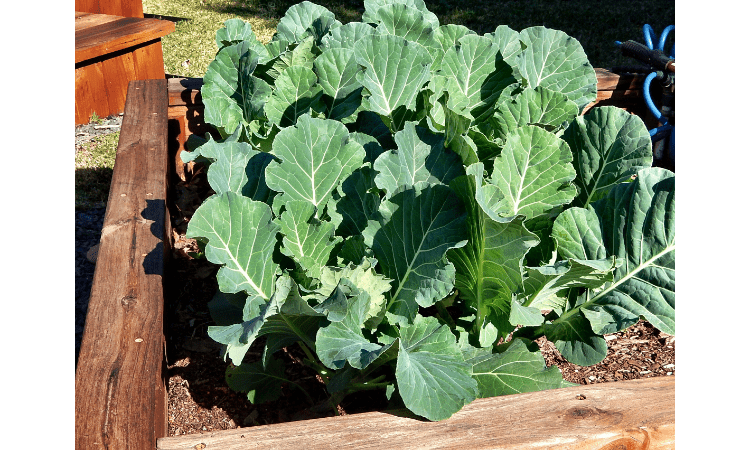
Collard greens are a good source of vitamin K, with two cooked cups providing 675% DV. These dark green leafy vegetables contain very little saturated fat and no cholesterol. Collard greens also have antioxidant properties that can potentially reduce cancer risk even further. However, collard greens should not be eaten raw because they have been shown to contain luteinizing hormone-releasing hormone (LHRH), a growth factor that could potentially stimulate the production of breast cancer cells in humans.
Spinach

Spinach is a rich source of vitamin K. It contains about 120 micrograms (mcg) per cup, which is about 90 percent of the recommended daily intake. As well as blood clotting, vitamin K is also used to synthesize proteins that are important for bone formation, to regulate cell growth and differentiation, and to promote cardiovascular health. Vitamin K is stored in the liver; therefore it’s important to eat foods rich in this vitamin regularly so that there’s always enough supply available for your body’s needs.
Brussels sprouts
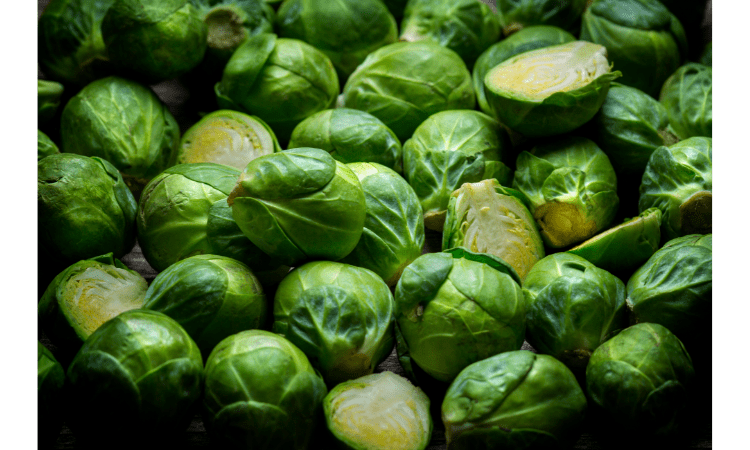
Brussels sprouts are a cruciferous vegetable, which means they belong to the same family as broccoli and cabbage. Cruciferous vegetables contain powerful antioxidants that may help prevent cancer, but there’s another health benefit of Brussels sprouts you might be surprised about: they’re high in vitamin K.
Broccoli

Broccoli is a nutrient powerhouse, providing a wide variety of vitamins and minerals. It’s high in vitamin K, fiber, folate and potassium. A cup of raw broccoli contains 76 milligrams of vitamin K which is 15% of the daily recommended value. Broccoli also provides 9 grams of fiber per cup! This makes it a great choice for those looking to improve their gut health by removing toxins from their digestive tract or reducing inflammation in the gut wall.
Folate plays an important role in DNA synthesis and repair while also supporting normal red blood cell production (R).
Another benefit to eating broccoli is its high antioxidant content that helps prevent diseases like cancer (R).
Asparagus
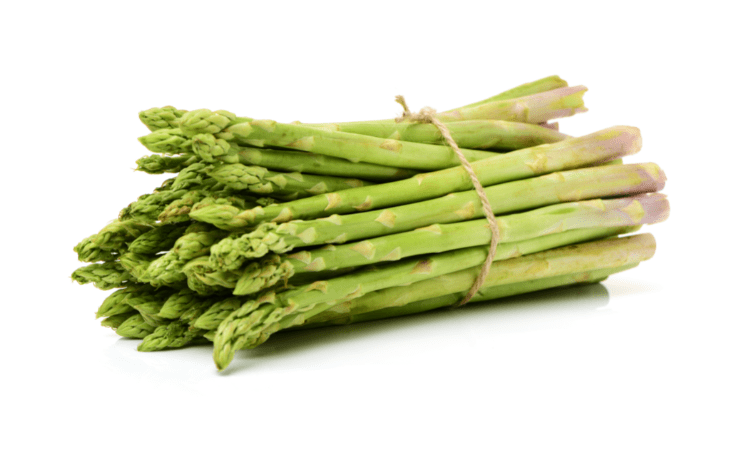
Asparagus is an excellent source of vitamin K. In fact, it may be one of the best sources out there, containing more than 100% of your daily recommended amount per cup. This vegetable also provides a range of other vitamins and minerals such as folate and magnesium, which help to promote healthy hair and nails as well as maintain a strong immune system.
Asparagus has been shown to reduce blood pressure by lowering levels of homocysteine in the blood stream—a chemical that can damage blood vessels if left unchecked. In addition to this, it’s also been found to lower cholesterol by removing excess nutrients from the body that contribute to high levels in some people.
Lettuce

- Lettuce is a good source of vitamin K, fiber, potassium and calcium.
- Lettuce ranks high as a low-calorie food with only 20 calories per cup. This makes it perfect for those trying to lose weight or maintain their current weight by eating less calories.
- It is also an excellent source of vitamin C, which helps your body absorb iron from other foods that contain iron such as beans and lentils.
Sauerkraut

Sauerkraut is a fermented cabbage that contains a lot of vitamin K. It’s also a good source of minerals, including selenium and zinc—which are great for your skin and immune system!
Sauerkraut is made by fermenting shredded white cabbage in salt water for about four weeks. The enzymes break down the fiber into simpler compounds that are easily digestible. The process also results in an increase in Vitamin C (by about 10 times), B vitamins (up to 20 times), and folic acid (almost 3 times).
Soybeans

- Soybeans are rich in vitamin K. It’s a fat-soluble vitamin that can help maintain healthy blood clotting, and its benefits have been linked to heart health, cancer prevention and bone health.
- Soybeans also contain protein. This essential nutrient is responsible for repairing and building muscles, among other things. Protein also helps you feel full after eating so it may be useful if you want to lose weight or reduce your calorie intake while eating more protein-rich foods like soybeans.
- Soybeans are high in fiber too! Fiber helps lower cholesterol levels while promoting heart health by reducing bad LDL cholesterol while increasing good HDL cholesterol levels in your body. Fiber also keeps your digestive tract running smoothly by preventing constipation issues such as hemorrhoids or irritable bowel syndrome (IBS). You need around 25 grams of dietary fiber each day; soybeans provide almost half this amount per serving.
Edamame

A legume is a plant with seeds in pods. Edamame are fresh green soybeans that have been shelled and then boiled or steamed. They are an excellent source of protein, iron, fiber and many other nutrients.
The iron found in edamame is non-heme (plant-based) iron—which can be harder for the body to absorb than heme iron (animal-based). Edamame contains about 8 milligrams of vitamin K per cup; this nutrient helps maintain healthy blood clotting and bone density as well as having antioxidant properties.
Pine nuts
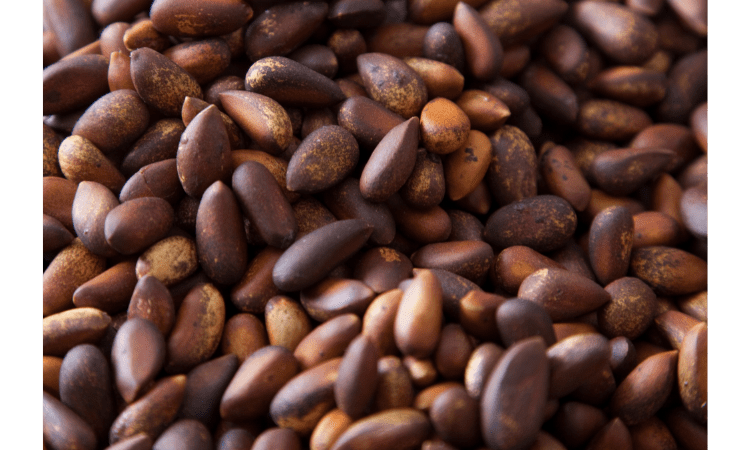
Pine nuts are a good source of vitamin K, which is essential for bone and vascular health. A serving of pine nuts contains an impressive 357 micrograms (mcg) of vitamin K, or 57% of the daily recommended intake. In addition to being high in this important nutrient, pine nuts are also a good source of manganese (1.1 mg per serving), zinc (.3 mg per serving), copper (.2 mg per serving), magnesium (.9 mg per serving).
Vitamin K is needed for blood clotting and helps prevent excessive bleeding after injury or surgery. It’s particularly important during the early postpartum period when new mothers experience heavy menstrual bleeding as well as significant changes in their hormone levels after birth.
Pumpkin

The pumpkin is one of the best sources of vitamin K. In fact, one cup contains 531% DV of this essential nutrient.
Pumpkin seeds are a rich source of vitamin K and contain more than 100% DV per ounce when chopped or pureed into butter. They also have healthy fats, protein, fiber and other nutrients that can help you stay satiated longer.
Blueberries

Blueberries, a fruit that is close to being a berry in both appearance and taste, are packed with antioxidants. These antioxidants help prevent premature aging and can also prevent memory loss. Their antioxidant content also helps protect your heart and brain, as well as lower the risk of cancer.
Blueberries are high in vitamins C and E, which help keep skin healthy by keeping free radicals at bay. The vitamin K found in blueberries also prevents bone loss. Blueberries are good for people with diabetes because they do not spike blood sugar levels like other fruits do when consumed excessively.
Conclusion
Vitamin K is an important nutrient that’s often overlooked. While a deficiency is relatively uncommon, it can lead to problems in blood clotting. Blood clots are essential for the body, helping to stop bleeding and repair wounds. Some studies have also suggested that vitamin K may help prevent osteoporosis. A person should be able to get all the vitamin K they need from their diet by eating sources such as broccoli, kale, spinach or turnips. However, some individuals may need supplements if they’re on medication or if they don’t get enough nutrients from their diet.











